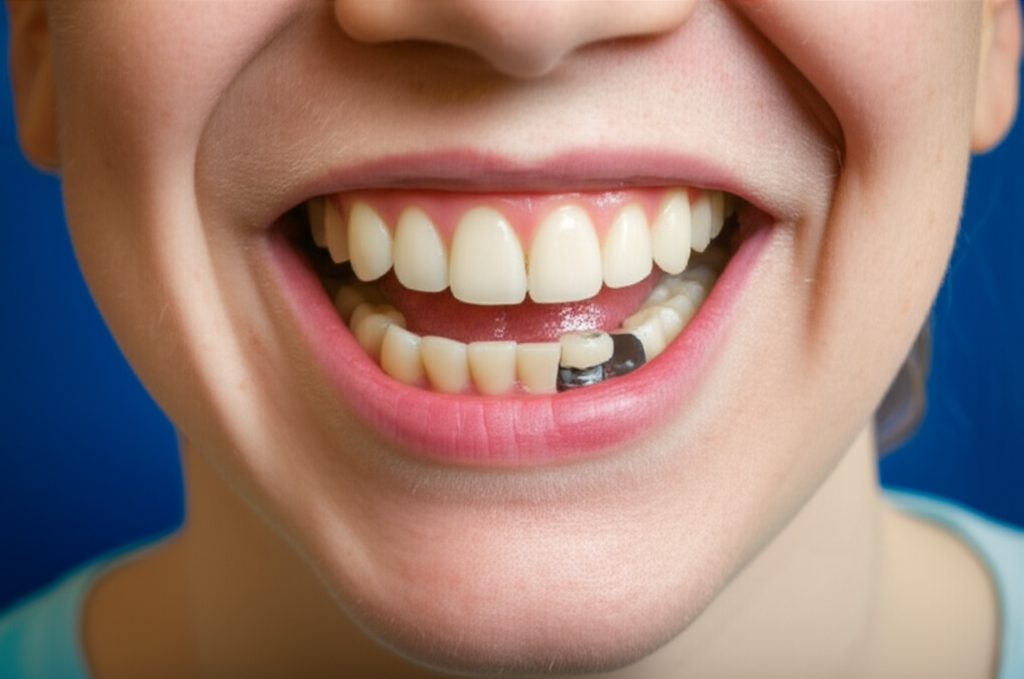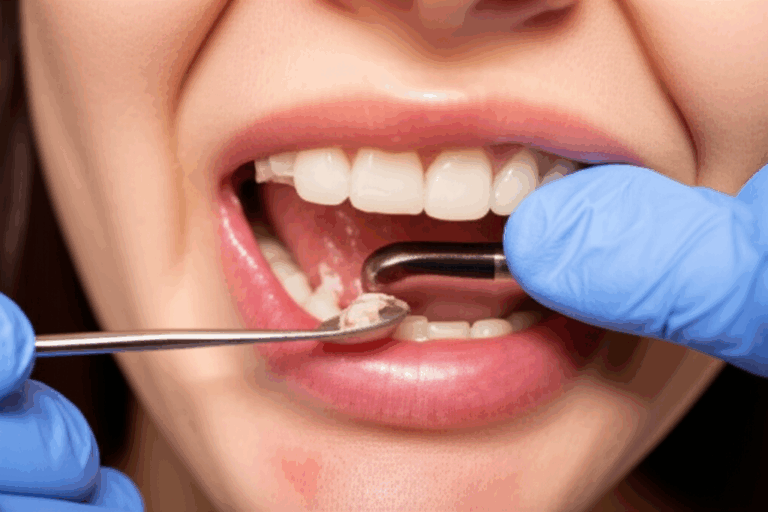
What Are The Disadvantages of Dental Implants? A Simple Guide to Risks and Downsides
Thinking about dental implants? This article breaks down the possible risks, costs, and concerns you may face. We’ll help you decide if they are the right choice for your teeth health. If you’re weighing your options and want honest, easy-to-understand answers, keep reading.
Table of Contents
- What Are Dental Implants?
- Why Do People Choose Dental Implants?
- What Problems Can Happen During Surgery?
- What Happens If an Implant Fails?
- How Much Do Dental Implants Cost?
- How Long Does It Take to Get Dental Implants?
- Who Might Not Be a Good Fit for Dental Implants?
- Do Dental Implants Always Look and Feel Natural?
- How Do These Risks Make People Feel?
- Can You Lower The Risks of Dental Implants?
- Conclusion: Is a Dental Implant Right for You?
- Key Points to Remember
What Are Dental Implants?
Dental implants are fake tooth roots. Dentists put them into your jaw where you don’t have teeth. These metal posts (usually made from titanium) help hold crowns, bridges, or dentures. Dentists use them a lot because they work kind of like real teeth.
When you visit a crown and bridge dental lab, you might see these kinds of replacements getting made. Labs use new digital tools to help dentists make implants that fit just right.
Why Do People Choose Dental Implants?
Here’s why so many people like them: dental implants are strong, can last a long time, and look nice. When they are in, you can eat almost any food, talk easily, and smile without worry.
But there’s something else to know. People talk about what’s good about implants but don’t always talk about what’s bad. If you want the full story, let’s look at what can go wrong.
What Problems Can Happen During Surgery?
Every time you have surgery, there are risks. Dental implants are the same. Here’s what might happen:
Infection at the Implant Place
After you get an implant, germs can get in. Bacteria like to hide where your gums and bone meet. If you notice more swelling or pain, or your gum feels hot and red, call your dentist.
Doctors use medicine to treat infection. Sometimes they need to clean the place. Rarely, the dentist has to take out the implant, wait for healing, and try again.
Nerve Trouble
Your mouth has lots of small nerves, especially in the bottom jaw. If the implant touches a nerve, you might feel tingling, numbness, or pain. Most of the time this goes away, but for some people, the numb feeling stays.
Sinus Issues (for Top Jaw Implants)
If your implant is in the top jaw, it’s close to your sinus. Sometimes, the metal post pokes into your sinus. This can cause sinus pain or headaches. Good dentists use scans to avoid this, but there’s still a small chance.
Pain, Bleeding, and Swelling
It’s normal to be a bit sore or puffy after an operation, including dental implant surgery. But if you have pain, bleeding, or swelling that doesn’t go away in a few days, something may be wrong.
What Happens If an Implant Fails?
Everyone wants a good result, but not all implants work out.
Failed Osseointegration
For the implant to work, it has to stick to your bone. That’s called osseointegration. If your body doesn’t accept the implant, it stays loose. This happens in about 2-5% of cases. Smoking, weak bones, and some sicknesses make this happen more often.
Peri-Implantitis
Gum disease around the implant is called peri-implantitis. It’s sort of like gum disease but around implants. It can cause bone loss, and the implant could fall out or need to be removed.
Parts Breaking
Implants have different pieces:
- Abutment (screw connector)
- Crown (fake tooth on top)
- Implant post (root in the jaw)
Any of these could break, get loose, or chip. For example, the connector screw might get loose (about 1 in 10 over five years). Crowns can break or chip if you bite hard or grind your teeth.
Table: Common Dental Implant Problems
| Type of Problem | How Often It Happens | What Might Happen |
|---|---|---|
| Infection | 1-5% | Red, swollen, or pus around implant; pain |
| Nerve damage | 0.7-1.3% | Numbness in lip, chin, or tongue; sometimes permanent |
| Peri-implantitis | 10-20% | Swelling, bleeding gums, bone loss around implant |
| Implant failure | 2-5% (higher in smokers/diabetics) | Loose implant, pain, might need to remove |
| Parts breaking | 5-10% (screw loosening); 5-8% (crown breaks) | May need repairs or new parts |
How Much Do Dental Implants Cost?
If you’re thinking about money, you’re not alone. Dental implants cost a lot because they need special skills and tools. Here’s what to know:
What You Pay at First
One dental implant (including the metal post, connector, and crown) can cost $3,000–$6,000 or more. If you need bone added or sinus work done, that’s even more money.
Unlike bridges or dentures made in a removable denture lab, your insurance might not pay much for implants. This means you might pay most of it yourself.
Extra and Long-Term Costs
Implants don’t always mean “pay once and you’re done.” There can be more visits and expenses:
- More cleanings or special brushes for daily care
- Fixes if the crown chips or screw gets loose
- More X-rays, checkups, or even new crowns
- Treating infections, gum problems, or bone loss
You should plan for the total cost, not just the first bill. That way you won’t be shocked later.
How Long Does It Take to Get Dental Implants?
Dental implants aren’t fast. Even though a digital dental lab can make your crown quickly, your gums and bone don’t heal that fast. Here’s what usually happens:
- First visit: Check-up, X-rays, and planning
- Surgery: Putting the post in your jaw
- Healing: Wait 3-6 months for bone to grow around the implant (osseointegration)
- Next visit: Put on the abutment and crown
If you need more bone added, it can take even longer—sometimes more than a year from start to finish! You’ll need more dental visits for cleanings and checkups.
Who Might Not Be a Good Fit for Dental Implants?
Dental implants help a lot of people—but not everyone. Here’s who should think twice:
Weak Bone
If your jawbone isn’t thick or strong enough, the implant might not stay put. You might need bone added first, which makes it cost more and take longer.
Some Health Problems
People with bad diabetes, immune illnesses, or those taking certain medicines (like chemotherapy or bone drugs) have a higher chance of trouble. If your body doesn’t heal well, implants are harder.
Smoking
Smoking slows healing and boosts the chance of infection and implants not working—a lot. Some studies say up to 1 in 5 implants fail in smokers.
Young Kids and Old Adults
Implants are not for kids who are still growing. Older people in bad health might also heal more slowly after surgery.
Not Good at Brushing
If you don’t brush and floss or you skip the dentist, you might get gum disease (peri-implantitis). Dental implants need you to take good care of them.
Do Dental Implants Always Look and Feel Natural?
Most implants today look and feel like real teeth. But sometimes, things don’t turn out perfect.
Gum Shrinking and Looks
If your gum moves away from the implant, the metal part can show. This might look bad, especially in the front. Sometimes, the crown color or shape may not match your teeth.
Feels Different
Some people say their implant feels “different” from a real tooth. That’s normal, because implants don’t have nerves like real teeth. You may not feel hot or cold as well in that spot, and biting might feel weird for a while.
Talking Problems
This mostly happens with full or many implants. You may have a hard time saying some words. Most times, your speech goes back to normal once you get used to your new teeth.
How Do These Risks Make People Feel?
Worrying about surgery, pain, or spending money is normal. I remember feeling nervous before my own procedure. Lots of people get stressed or upset—especially if the first try doesn’t work.
Some people feel sad if the implant doesn’t look right or if they need another surgery. No one wants that.
You might wish you never got implants if things don’t get fixed soon. These feelings are normal, and you should talk to your dentist openly about them.
Can You Lower The Risks of Dental Implants?
The good thing is, most problems can be cut down a lot. Here’s how:
Pick a Good Dentist
Find a dentist or surgeon who does many dental implants. Ask how many they’ve done. Look for special training. An experienced dentist knows how to miss nerves, put the implant in the right spot, and fix problems.
Labs are important too! At a great implant dental laboratory, crowns and implants are made carefully for better fit and less trouble later.
Get a Careful Check Before Surgery
Before you get a dental implant, your dentist should check your:
- Overall health, like blood sugar and immune system
- Bone strength and thickness, with scans or X-rays
- Gum health and how you care for your teeth
This way, they see problems early and can make a plan for you.
Follow Care After Surgery
After your implant, taking care matters a lot. Brush, floss, use special cleaning tools, and go to the dentist often. If you smoke, stop (at least when healing). Ask your dentist how to keep your implant safe.
Know Other Choices
Implants aren’t the only way to fix a missing tooth. Bridges, dentures, or even leaving a gap can be okay too. Always talk about the good and bad sides of each way so you know what’s best for you.
Conclusion: Is a Dental Implant Right for You?
Let’s be real—dental implants are great for lots of people. They give a solid and nice way to fix missing teeth. But you should know the risks, costs, and time needed.
Not everyone will have an easy time. But if you learn more, pick a good dentist, and keep your mouth clean, your chances are good.
One tip: Don’t just believe the first ad you see. Talk to your dentist honestly. Ask about their lab partners, experience, and what can go wrong. If you want the best tooth replacements or need help with tricky cases, you can reach out to an expert dental ceramics lab or a china dental lab for modern ways of doing things.
Key Points to Remember
- Dental implants can fail because of infection, weak bone, or poor healing.
- Surgery comes with risks like nerve trouble, sinus problems, and swelling.
- High cost and waiting times are normal; insurance may not cover much.
- Not everyone is a good choice—smokers, kids, and people with some health issues have more risk.
- Daily cleaning, checkups, and a good dentist are key for success.
- Check out all your choices and talk about risks with your dentist.
Thinking about dental implants? Learning more helps you choose. Take care of your teeth and talk with a skilled dentist to find out what’s best for you.








